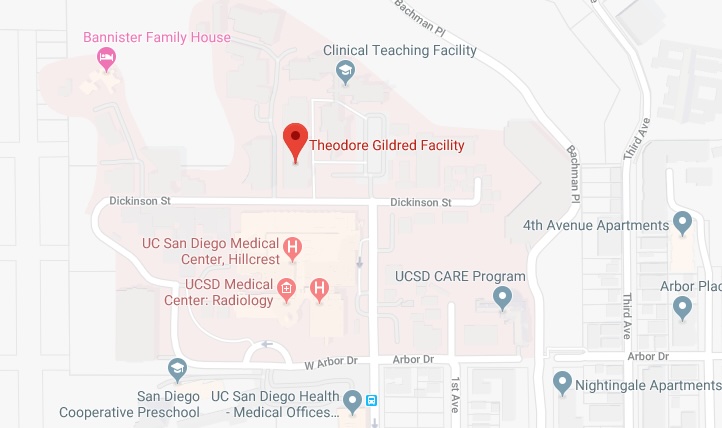Uncategorised
ABOUT IRFN
Interdisciplinary Research Fellowship in NeuroAIDS (IRFN) is affiliated with the HIV Neurobehavioral Research Program (HNRP) at the University of California San Diego (UCSD). The impetus for this educational program is driven by the idea that our future success in tackling the complex clinical disorders encountered in neuroAIDS depends on the availability of clinically-oriented researchers with training across relevant research disciplines. To this end, we have followed an interdisciplinary model of research training aimed at bridging the gaps left by single discipline approaches. Our program functions as a neuroAIDS-themed Special Institute emphasizing interdisciplinary and translational neuroAIDS research through three main programmatic components: an academic didactic program, a research component, and close mentoring by experts in the field, making available the talents of preclinical and clinically oriented neuroAIDS researchers at UCSD and affiliated regional institutions. The IRFN provides a clear progression for each fellow toward independence in order to consolidate their future success. Fellows will be learn to approach neuroAIDS research questions from an interdisciplinary and translational perspective, with potential clinical applications as an essential end point of their work. The research experiences of IRFN fellows will be in the laboratories of high-caliber, internationally recognized neuroAIDS researchers.
The program features:
- Outstanding faculty who have a long history of mentoring researchers to become independent investigators;
- Research experiences that are tailored to each fellow's needs including access to external experts in their laboratories or invited onto campus;
- Both fixed and flexible didactic experiences
Fellowship Goals
The Interdisciplinary Research Fellowship in NeuroAIDs (IRFN), with funding from the National Institute of Mental Health (NIMH), provides training and mentoring to clinical and basic scientists interested in careers in neuroAIDS research.
Training experiences emphasize the interdisciplinary and translational nature of clinical problems in neuroAIDS in order to prepare future scientists to tackle emerging questions in the field.
The IRFN pairs trainees with mentors from clinical and basic science backgrounds according to their research interests, and provides a clinical literacy program in neuroAIDS for basic scientists.
IRFN Fellows are exposed to cutting-edge scientific environments and have contact with some of the most respected neuroAIDS researchers in the world.
- IRFN Intro - A NIMH-Funded R25 Education Program – Mariana Cherner PhD
- Central Nervous System Distribution of Antiretroviral Drugs – Scott Letendre, MD
- HIV Persistence, Reservoirs and Care – Ron Ellis, MD, PhD
- Interdisciplinary Research Fellowship in NeuroAIDS Seminar – Christine Fennema-Notestine, PhD
- Animal Models of NeuroAIDS & HAND – Marcus Kaul, PhD
- The cells that make you lose your nerves – Cecilia Marcondes, PhD
- The Role of the Microbiome in CNS Disorders – Scott Petterson, PhD
- Clinical HIV and Therapies – Sara Gianella Weibel, MD
- HIV-Associated Neurocognitive Impairment in Hispanics/Latinos – Maria Marquine, PhD
- IRFN 2020 Graduation Event
Eligibility and Application Process
The IRFN is a 2-year program for postdoctoral scientists. Fellows spend 30% time on IRFN activities, in coordination with their clinical training program.
Who is Eligible?
Candidates interested in applying for the IRFN fellowship should prepare an application package that includes:
The New Investigator Engagement Program recruits, supports, and follows the progress of graduate students, postdoctoral (Ph.D. or M.D.) fellows, and junior faculty in disciplines relevant to HNRC research. The objectives of the program is to assist enrollees with research training and experience in neuroAIDS through:
- Matching of trainees with appropriate faculty mentors and monitoring the process to encourage effective interactions and career development;
- Referral to and support for formal courses in methodology directly relevant to their research projects;
- Mentoring in the design, data collection, analysis, presentation and publication of research studies and in the process of developing and submitting peer reviewed grant proposals;
- Small grants or other aid to support their HNRC-related projects.

A virtual memorial for Professor Cris Achim took place on Thursday, February 20, 2025. The video recording of the event can be found here.
We encourage you to share some thoughts or reflections about Dr. Achim that will be gathered for a virtual archive. Please leave your comments or upload photos at this link.
It is with great sadness that we learned that our dear colleague and friend Cris Achim passed suddenly last Tuesday, December 3, 2024. Dr. Achim had been a member of our group since 2007, contributing his neurobiology and neuropathology expertise to our many translational studies. At the time of his death, his critical roles included being head of the neuropathology unit of the California NeuroAIDS tissue network, a co-Director of the Interdisciplinary Research Fellowship in NeuroAIDS, and also head of the Neurobiology unit of the HIV Neurobehavioral Research Center.
Address:
220 Dickinson Street, Suite B, MC8231
San Diego, CA 92103-8231
Email: This email address is being protected from spambots. You need JavaScript enabled to view it.
Phone: (619) 543-5000
Fax: (619) 543-1235
Click on map to link to directions:
Igor Grant, M.D., F.R.C.P.(C), Director of the HIV Neurobehavioral Research Program (HNRP)
Igor Grant, M.D., is Professor of the Department of Psychiatry at the University of California, San Diego School of Medicine. He is Director of the HIV Neurobehavioral Research Program (HNRP), which includes the California NeuroAIDS Tissue Network (CNTN), the Translational Methamphetamine AIDS Research Center (TMARC), the HIV Neurobehavioral Research Center (HNRC), the CNS HIV Antiretroviral Therapy Effects Research (CHARTER) and the University of California Center for Medicinal Cannabis Research (CMCR). Dr. Grant is the founding Editor of the Journal of the International Neuropsychological Society and founding co-editor of the journal AIDS and Behavior.
Investigators
AVAILABLE STUDIES
The HIV Neurobehavioral Research Program (HNRP) at the University of California San Diego (UCSD) is conducting research into the effects and treatments of HIV infection and co-occurring conditions (for example, Hepatitis C).
You may be eligible to participate in one or more of these research studies. Benefits of participation vary but may include test results, treatments and/or compensation. All personal information is strictly confidential. Study participation is voluntary.
For further details about any of our studies, please call (619) 543-5000 and ask to speak with a recruiter or email study staff at This email address is being protected from spambots. You need JavaScript enabled to view it. (please do not email personal health information).
**Click here to see available studies**
MENTAL HEALTH RESOURCES
If you are experiencing any mental health difficulties or are in need of services related to sexually transmitted diseases or alcohol or substance use, please refer to this list of local mental health resources. This list provides contact information for numerous organizations that specialize in treatment, rehabilitation and recovery services for those experiencing persistent and severe mental health issues and/or a behavioral health crisis, as well as housing and referral services.
Learn More about Mental Health Resources offered in the Community by downloading the PDF below:
Mental Health Resources PDF in English
Mental Health Resources PDF in Spanish
The Conference on Retroviruses and Opportunistic Infections (CROI) was established in 1993 to provide a forum for basic scientists and clinical investigators to present, discuss, and critique their investigations into the epidemiology and biology of human retroviruses and associated diseases. The synergy of basic science and clinical investigation has been a major contributor to the success of the meeting. CROI has facilitated the presentation of important discoveries in the field, thereby accelerating progress in HIV and AIDS research. As always, the best and most consequential original research in HIV, hepatitis viruses, SARS-CoV-2, and other viral infections and their related conditions defines the science at CROI.
The HIV Neurobehavioral Research Program (HNRP) at the University of California San Diego (UCSD) is conducting research into the effects and treatments of HIV infection and co-occurring conditions (for example, Hepatitis C).
You may be eligible to participate in one or more of these research studies. Benefits of participation vary but may include test results, treatments and/or compensation. All personal information is strictly confidential. Study participation is voluntary.
For further details about any of our studies, please call (619) 543-5000 and ask to speak with a recruiter.
Research Review Conference
Thursday, January 5th, 2016
9:30 – 11:00 a.m.
Call-in Information: Number: (866) 740-1260; Access Code: 5434749
9:30 am Proposal: Effect of HIV and smoking on nicotine system function and cardiovascular risk – Brook Henry, PhD, UC San Diego
10:30 am Publications Update
10:45 am Current funding opportunities
Upcoming Scientific Meetings and Abstract Deadlines
|
Conference |
Location |
Date |
Abstract Due |
|
International Neuropsychological Society |
New Orleans, LA |
Feb 1-4, 2017 |
Passed |
|
Conference on Retroviruses and Opportunistic Infections (CROI) |
Seattle, WA |
Feb 13 – 16, 2017 |
Passed |
|
The Society for Behavioral Medicine (SBM) http://www.sbm.org/meetings/2017 |
San Diego, CA |
Mar 29 – Apr 1, 2017 |
LB 2/28/2017 |
|
Society for Biological Psychiatry (SOBP) |
San Diego, CA |
May 18 – 20, 2017 |
LB 2/8/2017 |
|
American Psychiatric Association (APA) |
San Diego, CA |
May 20 – 24, 2017 |
Passed |
Current Funding Opportunity Announcements
|
Multidisciplinary Studies of HIV/AIDS and Aging (R01) |
9/8/18 |
|
|
Innovative Technologies and Assays in Support of HIV Cure Research (ITAS-Cure) (R43/R44) |
9/8/18 |
|
|
Drug Abuse Dissertation Research (R36) |
9/8/18 |
|
|
Strengthening Adherence to Antiretroviral-Based HIV Prevention and Treatment (R01) |
1/8/17 |
|
|
Women & Sex/Gender Differences in Drug and Alcohol Abuse/Dependence (R01) |
5/8/17 |
|
|
Substance Use and Abuse, Risky Decision Making and HIV/AIDS (R01/R21) |
5/8/17 |
|
|
Multidisciplinary Studies of HIV and Viral Hepatitis Co-Infection (R21/R01) |
5/8/17 |
Future RRC Topics
If you would like to present at an upcoming RRC meeting, please email Dr. Mariana Cherner at This email address is being protected from spambots. You need JavaScript enabled to view it. or Ariel Brinkerhoff at This email address is being protected from spambots. You need JavaScript enabled to view it..
|
January |
|
|
12 |
TMARC Overflow |
|
19 |
No RRC - COI |
|
26 |
|

Get Involved
- Participate in HIV/AIDS Research
- Donate to AIDS Research Foundations
- Educate your friends, family and partners
- Volunteer

Get Tested
The sooner you know your status, the quicker you can do something about it.
- The Early Test is offered by UCSD AVRC – contact them at (619) 543-8080 to book advance appointments.
- County Health Services Complex (Rosecrans) - Blood and rapid testing available
3851 Rosecrans St., Suite S, San Diego, CA 92110
(619) 692-8550
Mondays, Tuesdays & Fridays: 7:30 am - 4 pm
Wednesdays: 11 am - 7 pm
Thursday: 10 am - 4 pm
- Central Region Public Health Center - Blood and rapid testing available
5202 University Ave., San Diego, CA 92105
(619) 229-5400
Tuesday: 1 pm - 7 pm
Friday: 10 am - 4 pm
- South Region Public Health Center - Blood testing only
690 Oxford St. Chula Vista, CA 91911
(619) 409-3110
Thursdays: 12 pm–6 pm
- North Coastal Public Health Center - Blood testing only
104 South Barnes St., Oceanside, CA 92054
(760) 967-4401
Wednesdays: 12:30 pm–7:30 pm
- San Diego LGBT Community Center
3909 Centre Street, San Diego, CA 92103
(619) 692-2077
Mondays and Wednesdays: 9 am - 2 pm (County of San Diego anonymous HIV testing)
Tuesdays and Thursdays: 9 am - 3:15 pm (UC San Diego HIV Testing)
Fridays: 9 am - 1:45 pm (UC San Diego HIV Testing)

Get Safe
- Know your own HIV status
- Know your partner’s HIV status
- Create an open communication
- Use condoms (female or male)
- Limit your number of sexual partners
- Talk to your doctor about pre-exposure prophylaxis (PrEP). PrEP involves taking HIV medication everyday and intended for those who don’t have HIV but are at high risk of acquiring the infection.
- Avoid drugs, which can lead to risky behavior. If you can’t avoid drugs, don’t share needles.




